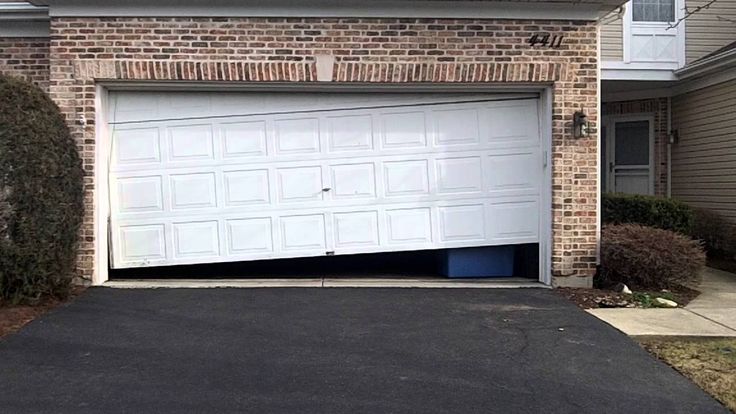A garage door is an integral part of your home, providing security, convenience, and curb appeal. However, like any other mechanical system, it requires regular maintenance to function correctly. One common issue homeowners face is an unbalanced garage door. An unbalanced door not only poses safety risks but can also lead to costly repairs if not addressed promptly. Recognizing the signs of an unbalanced garage door is the first step towards ensuring the longevity and safety of your door.

Key Signs of an Unbalanced Garage Door
Strange Noises
One of the first signs of an unbalanced garage door is the presence of strange noises during operation. If your garage door begins to make unusual sounds such as creaking, grinding, or banging, it’s a clear indication that something is amiss. These noises often result from the door’s weight not being evenly distributed, causing undue stress on certain parts.
Unwanted Opening or Closing
A garage door that opens or closes without input or stops midway is a telltale sign of imbalance. This unwanted behavior can occur when the door’s weight is unevenly distributed, leading to erratic operation. It’s crucial to address this issue promptly to avoid potential accidents or damage.
Difficulty to Open a Door Manually
Under normal circumstances, you should be able to open your garage door manually with minimal effort. If you find it increasingly difficult to lift your door, it could indicate that your garage door is unbalanced. The door’s weight might not be properly supported, making it harder to operate.
Garage Door Looks Slanted
Visually inspecting your garage door can also reveal signs of imbalance. If your garage door looks slanted or uneven when closed or during operation, it’s likely unbalanced. This visual cue suggests that one side of the door weighs more than the other, causing it to hang or move unevenly.
Door Falls Quickly
A properly balanced garage door should close smoothly and steadily. If your door falls quickly or slams shut, it indicates that the garage door is unbalanced. This condition is not only dangerous but can also lead to significant wear and tear on your garage door system.
FAQs
What Causes a Garage Door to Become Unbalanced?
Several factors can cause a garage door to become unbalanced, including worn-out springs, improper installation, or uneven tension in the cables. Regular wear and tear can also lead to imbalance over time.
Can I Fix an Unbalanced Garage Door Myself?
While some may attempt to adjust an unbalanced garage door on their own, it’s strongly advised to seek professional help. Garage doors contain powerful springs that can cause serious injury if not handled correctly.
How Often Should I Check My Garage Door for Balance?
It’s a good practice to check your garage door for balance at least once a year. Regular maintenance checks can help identify and rectify issues before they escalate.
Will an Unbalanced Garage Door Affect My Home’s Security?
Yes, an unbalanced garage door can compromise your home’s security. It may not close properly, leaving gaps that could allow unauthorized access to your garage and, potentially, your home.
Conclusion
Recognizing the signs of an unbalanced garage door is crucial in maintaining the safety, security, and functionality of your home. Regular maintenance and professional inspections can prevent imbalance issues and ensure that your garage door operates smoothly and reliably. If you notice any of the signs mentioned above, contact a professional garage door service company to assess and correct the imbalance promptly.

